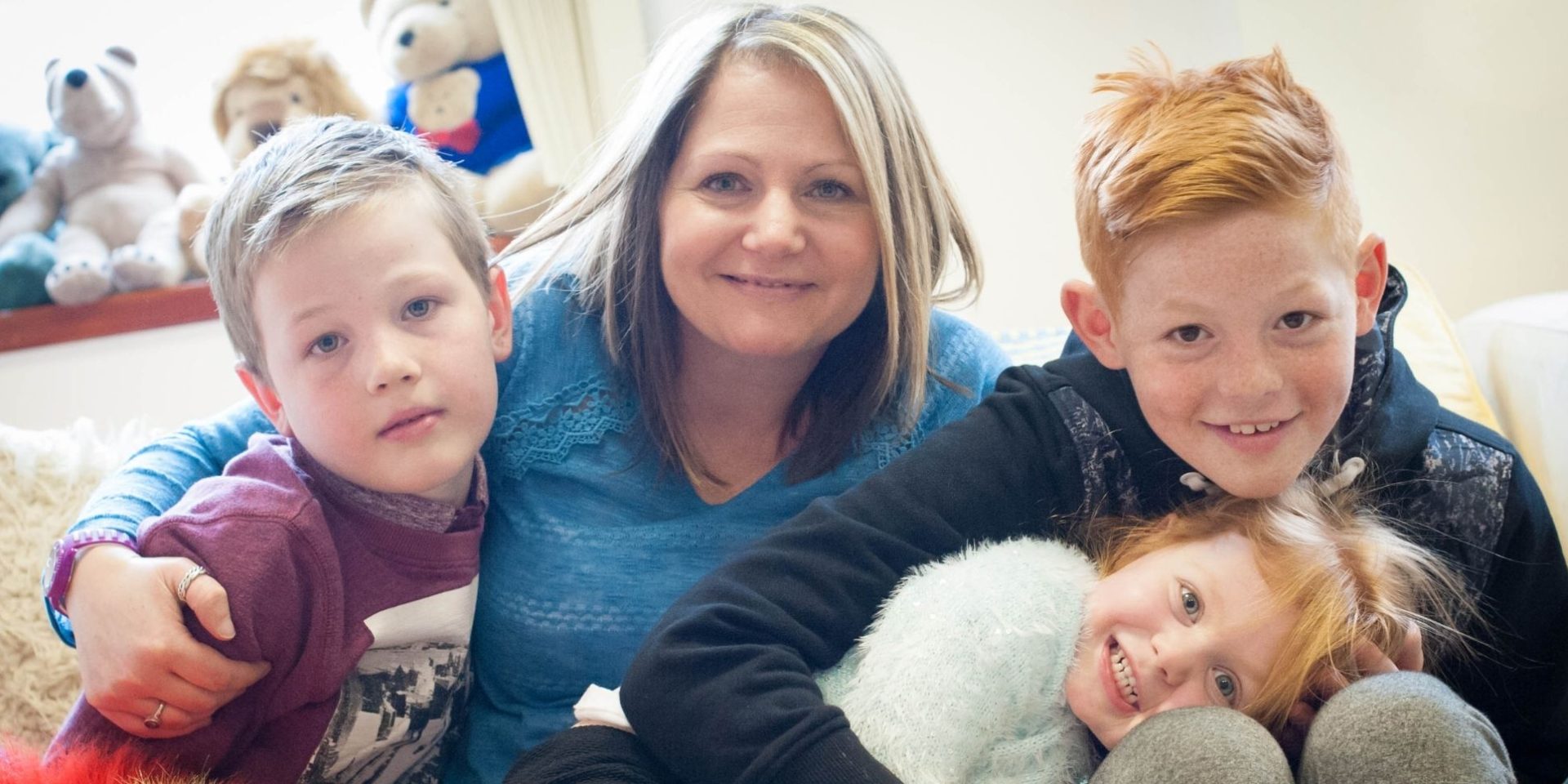As a widowed parent, there may come a time when you find a new partner and want to introduce them to your children. This is a daunting situation for everyone involved – you, your children and your new partner. Your children will probably feel lots of complicated emotions, including fear, anger and confusion, as this new person comes into their life.
There is no ‘correct’ way to talk to your children about a new relationship while they are still grieving for their parent who has died – the important thing is communication. Being able to tell your children what is happening and how you feel will encourage them to do the same.
Our experienced team offer some suggestions on how to talk to your children about a new partner, when to introduce them to the family and explain some of the emotions grieving children might feel in this situation. We also offer some guidance for your new partner taking on the role as a step parent to children after the death of their mum or dad.
Telling your children about a new partner after the death of a parent
When to introduce your new partner to your children is a question we get asked regularly at Winston’s Wish and there is no easy answer. Only you can decide when it’s the right time to introduce a new partner into your family after someone dies. However, there are a couple of things to consider:
1. How serious is your new relationship?
Your children have experienced a very significant loss with the death of their mum or dad and may be guarded when building a relationship with another parental figure. Of course, none of us know how a relationship will pan out in the long run but it’s important to be sure that this new relationship is significant enough to involve your children.
2. Tell them why you want to share your life with your new partner
Including children in discussions about why you may want to share your life with a new partner will help them to understand the choices you are making. It’s good for them to hear that you want another adult to share the good and bad times with, but that this doesn’t change the love you have for their mum/dad or the love you have for your children.
3. Be clear that your new partner won’t replace their parent who has died
It’s important to be clear with a child about the role of a new partner. Explaining that they are not a replacement for the deceased parent but they are someone who you care about a great deal and who you would like to be part of all your lives. You could say something like:
“You might be worried that [name of new partner] is going to try and replace your mum, and that might feel quite scary or make you feel a bit angry. I’m feeling a bit scared about how this is all going to work out but I will make sure that your mum is always a part of our lives too.”
What if my child refuses to accept my new partner?
Sometimes, a new relationship is too much for a bereaved child to cope with and they may totally refuse to be involved or accept it. This can be due to all sorts of reasons on the child’s part:
- The fear of losing someone else is likely to be playing a part in their feelings. They might be afraid of forming another parent/child relationship that could end, or possibly fear that the new relationship may mean that they ‘lose’ their surviving parent.
- They may view this relationship as a threat to the most important bond that they have with their surviving parent and it’s a very scary concept to think of having to share this person with someone else.
- Of course, your children may also be really struggling with seeing you with someone else when the last person you had a similar relationship with was their deceased parent.
This is all really tough stuff for children and young people to understand and manage, but this doesn’t mean that these new relationships shouldn’t happen. It can be really positive for children to overcome these difficulties and make new bonds. Their ability to cope with these transitions and develop their skill of understanding their emotions and being able to communicate these can be helpful for future development.
Helping your children understand that they are incredibly important but that your needs are also important is good modelling and helps them to understand what good communication looks like. This will be important in their own development into adults.
There may be things you can do to gradually introduce the new partner into their lives, so that the transition feels easier for them. An initial first meeting in the park for an hour or so may be far less intimidating than spending a whole weekend together.
Becoming a step parent to your partner’s grieving children
It is normal to feel anxious about joining a family where a parent has died. You may be worrying that family members will think you are trying to replace the deceased parent or worry about how you can demonstrate your love for them without erasing memories of their mum or dad. Talking about this can be really helpful. Acknowledge how the child might be feeling and that it’s ok to feel lots of different things. Explain that even as adults we don’t always have all the answers, but are here to listen and support.
Encouraging children to talk about their parent who has died can be a great way to demonstrate how important they are. You could say something like:
“Your mum told me that your mum was great at making spaghetti Bolognese. I’m rubbish at cooking; maybe sometime we could see if mum could cook mum’s spaghetti Bolognese recipe and we could learn how she did it together.”
Acknowledging the person’s life can help the child or young person to feel like their deceased parent can still be part of their life. After a death, talking about their memories can be helpful and, as the new partner, you can show that you feel it is important that this continues.
As relationships form between you and the children, they can become confused and anxious about their feelings. They can feel a sense of disloyalty to their deceased parent. Being open and honest is key and being able to communicate these complex emotions can help children to make sense of how they are feeling. You could say something like:
“I really care about you lots and I’m so happy that you’re in my life. I want to do all the things that a mum would do for their child but I understand that your mum will always be your mum and that will never change. Dad sometimes says that he feels guilty when we have lovely times together as he loves me but will always love your mum too. But it’s ok to have happy times and your mum would want you and dad to feel happy, it doesn’t mean that we will ever forget her and she will always be part of our lives.”
Get support
Our bereavement support workers are available to offer information, guidance and support, right away. Reach out on 08088 020 021 or use our live chat (click the blue ‘chat’ button on the bottom right of your screen) between 8am and 8pm, Monday to Friday. You can also email us on ask@winstonswish.org and we’ll get back to you within two working days.
Other resources you might find helpful

Publications and resources
Our specialist publications to help parents and professionals supporting grieving children and young people of all ages and circumstances.

Activities for bereaved children
Download our activities to help grieving children and young people to explore and express their feelings and emotions and to help them maintain memories of the person who has died.


